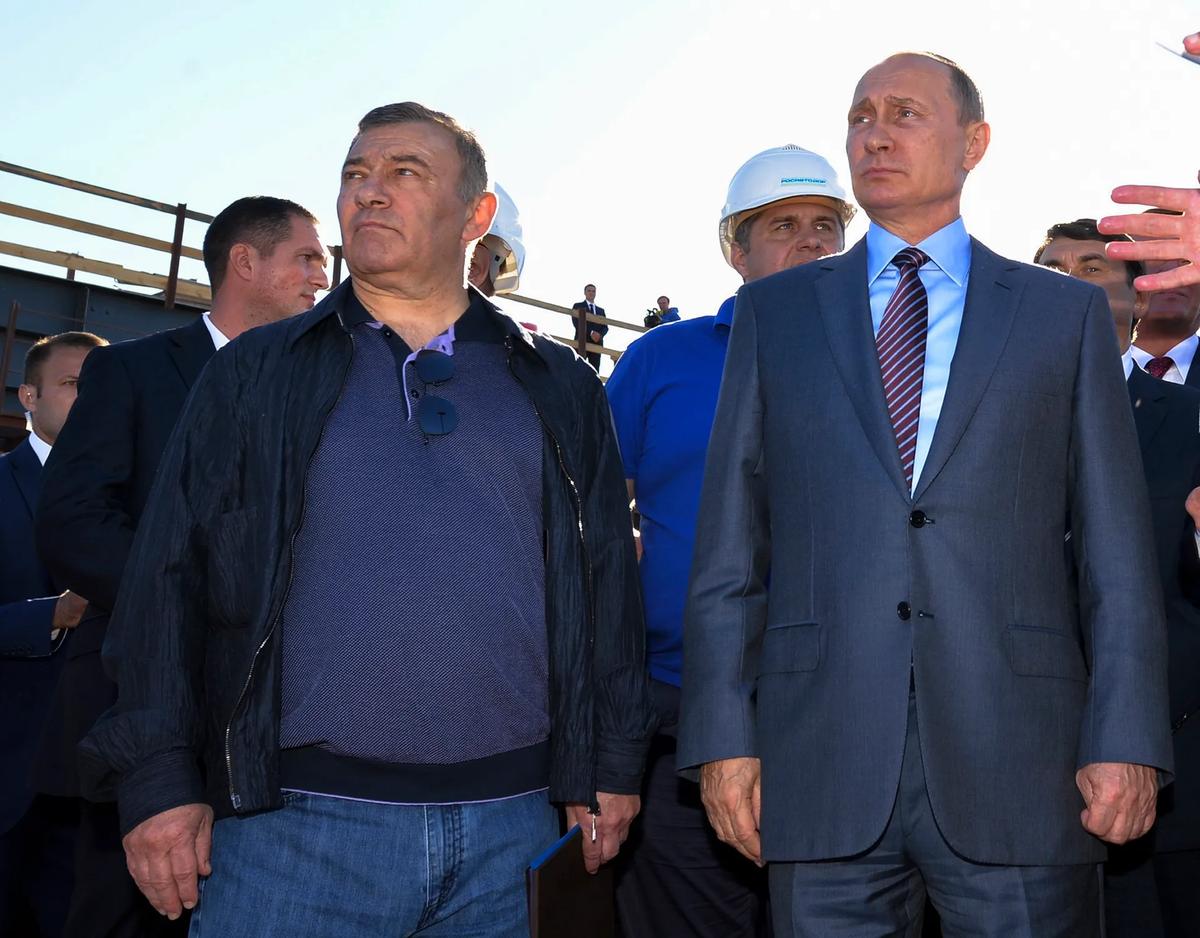In response to Russia's invasion of Ukraine, the UK, US and the European Union (EU) have imposed sanctions on some of Russia’s most high-profile individuals and companies. Canada and Japan have also enforced economic restrictions. The move is aimed at freezing oligarchs' foreign-owned assets, which could potentially extend to some of the most valuable art collections in the world, though those held in trusts will be out of reach.
So who is on the list?
Russian President Vladimir Putin’s assets in the EU, US and UK have been frozen over his recognition of the independence of Donetsk and Luhansk and full-scale invasion of Ukraine, according to an EU legal text published on Friday. Putin’s personal art collection was given a boost in 2015 by a gift from an elderly woman named Nina Moleva of more than 1,000 works, reportedly worth between $400m and $2bn. The collection was said at the time to include paintings by Velazquez, Rubens and Michelangelo, though this has never been verified and where these works are currently held is unclear.
Boris Rotenberg, a childhood friend of Putin and co-owner of the largest construction company for gas pipelines in Russia, SMP Group, is among those to come under UK sanctions. Such measures have not deterred him in the past, however.
Rotenberg and his brother Arkady were subject to sanctions by the US government in 2014, but a Panama Papers report revealed that they continued to buy and sell multi-million-dollar works of art, including the $7.5m private sale of René Magritte’s La Poitrine, and a $6.8m spending spree during a single sale of Impressionist and Modern art at Sotheby’s. The auction house subsequently said they would no longer deal with people and companies named in the report.
A number of Russian banks are also facing sanctions. Both the US and the UK have frozen assets at VTB Bank, Russia’s second-largest bank. It is not clear how extensive the bank’s art collection is, and where it is held, but the company heavily invests in culture including the Pushkin Museum of Fine Arts and the State Hermitage Museum.
Alfa Bank has also been targeted by the EU and the US, where debt and equity restrictions have been imposed. Though not personally named, Pyotr Aven is currently the chairman of the bank’s board of directors. He is one of the most prolific collectors of Russian art, whose collection includes important paintings by Igor Larionov, Natalia Goncharova and Wassily Kandinsky. Parts of his collection are housed in Moscow and the UK, where the garden of his Surrey house is populated by sculptures by Lynn Chadwick, Henry Moore and Louise Bourgeois, among others. He plans to open a private museum in Riga in Latvia, where some of his collection could also be held.
Meanwhile, a number of other oligarchs and companies who are not on the list could also face sanctions. The Labour MP Chris Bryant has called for Roman Abramovich to be stripped of his assets, including Chelsea Football Club. The Russian billionaire also owns a vast art collection, which is reported to include Lucian Freud’s Benefits Supervisor Sleeping (1995), which he bought for $33.6m in June 2008, and Francis Bacon’s Triptych (1976), which was purchased the same week for $86.3m.
The British government privately named him as a person of interest in 2019, but Abramovich has vehemently disputed reports suggesting his alleged closeness to Putin. On Saturday, Abramovich released a statement saying he would hand over the “stewardship and care” of Chelsea to its charitable foundation arm, though its trustees are yet to approve the move.
Energy giant Lukoil is another to be considered a potential target for European sanctions, given the oil company’s importance to the Russian economy. The firm is already subject to some US sanctions. Vagit Alekperov, the president and chief executive of Lukoil, is an avid coin collector and opened a numismatics museum in Moscow in 2015.
While sanctions have proved hit and miss in the past, perhaps more meaningful will be the expulsion of selected Russian banks from Swift (the Society for Worldwide Interbank Financial Telecommunication), the main secure messaging system used to make rapid and secure cross-border payments. Collectors may not be immediately affected by these measures, though any attempts to buy or sell art internationally are likely to be hampered. Offshore transactions, however, will be more difficult to monitor.
- Update: On 28 February, the EU added more names to its sanction list including Pyotr Aven, describing him in legal documents as "one of approximately 50 wealthy Russian businessmen who regularly meet with Vladimir Putin in the Kremlin". Alisher Usmanov was also named as a "pro-Kremlin oligarch with particularly close ties" to Putin. Usmanov famously halted an auction at Sotheby's in 2007, stepping in to buy the entire collection of the late musician Mstislav Rostropovich for more than £25m and donating it to one of Putin's palaces. In recent years, he has become an influential sponsor of museum exhibitions, including international exchanges with the Vatican, among others.
- Update: On 28 February, Switzerland and Monaco announced they would also freeze assets and impose sanctions on certain Russians.


